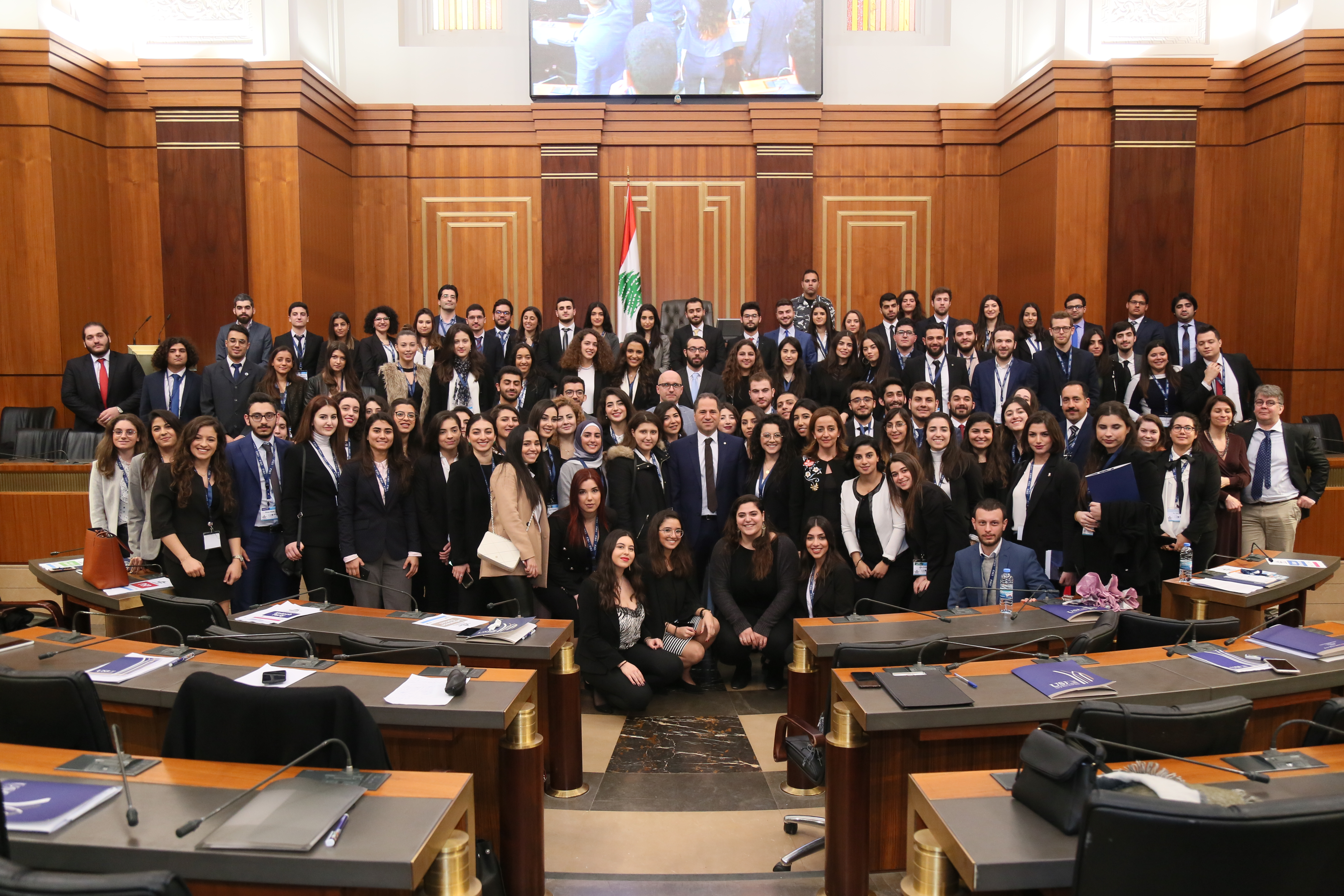How I made it into the Lebanese Parliament (three times)

On the 9th of March, 2018, at the opening session of the Model Youth Parliament, I sat in the chair of a Lebanese Member of Parliament for the first time in my life. I had just started my internship at FNF in Beirut and was still struggling to fully understand the Lebanese Political system – which I realized soon to be an eternal challenge.
As one of my first projects, I was asked to help with visualizing the structure of the Model Youth Parliament, a parliamentary simulation that FNF recently had become a co-host of. Coming from Germany, I had a clear theoretical idea of a well-organized, working parliament. But trying to understand the ideas and mechanics of the Lebanese Parliament and it’s simulation quickly lead to vibrant discussions about them. We moved every detail back and forth, which was a meticulous process but in consequence led to major improvements of the program.
For the first mutual MYP, we agreed with USJ to introduce real Lebanese parties, not only for the sake of labeling, but also to include members of the parties who would assist the students in understanding their new identity in the MYP. I was a bit nervous about that, as the representatives of USJ had told us that everything involving political parties is sensitive. As an example they mentioned high security measures during heated student elections, something that is very different than in Germany, where campus elections rarely even have a turnout of more than 20%.
But we didn’t face any problems, in the contrary, it turned out to be the successful first step of pushing the program towards being a simulation of the Lebanese political work, rather than an open debate about current political topics.
Like the MYP developed, I simultaneously did too on a personal level. Having become a long term consultant in the meantime and experienced not only a range of political projects and events with FNF, but also the Lebanese Parliamentary elections in 2018, I felt much more confident to contribute to the program.
I enjoyed working on the program, as I considered it incredibly important to open the doors of a usually rather closed Parliament to the young, interested students. For a society that is rather frustrated and pessimistic about politics and politicians, the importance to lead new talents towards politics can’t be stressed enough.
For the second edition of MYP with FNF, we had much more preparation time that we put into good use for the next big step of reshaping the program. This time, we wanted to make sure, that the focus is on the procedures of political work, a topic that rarely can be understood and thought in any other setting or context.
To further develop the program in that direction, we changed the agenda to a 4-day intensive program, added mentors that company the participants all the time and created a website and a booklet as additional supporting material for the participants.
The extended preparation time and the experience of the first edition carried fruit, as the second MYP was a much more distinguished program. It was inspiring to watch the students go back and forth between the different groups they were working in and listen to their heated debates to get majorities. When we were sitting in the parliament at the last day, the results of all our changes and the hard work we put into the program became clearly visible in the excellent debate the students had about the draft laws they were working on.
Shortly after that, we went for a visiting program to Berlin with some of the most outstanding participants, to reward them for their engagement and to further extend their experience. It felt not only like a reward for the students, but also a reward for us, after months of hard work.
In the preparation of the 2019 edition of the MYP, we realized that to further develop the program and ensure its benefit for every participant we need external help. We managed to get polyspektiv on board of the program, who are managing the German equivalent of the MYP in the German Bundestag. It was not only very helpful for the program, but also personally encouraging to hear from experts who work on political simulations since more than 15 years, that they consider most of our decisions and working methods suitable.
With their help during the whole preparation and execution, we could again lift the program to a new level. During the whole program, the participants were even more engaged and involved than before.
And when I was sitting in the front row of the Lebanese Parliament for the third time, listening to the participants’ statements, I recapped the progress that the whole MYP made and couldn’t help but being grateful and proud at the same time to have been part of this program, the Model Youth Parliament.
To see pictures from the last MYP, click here.